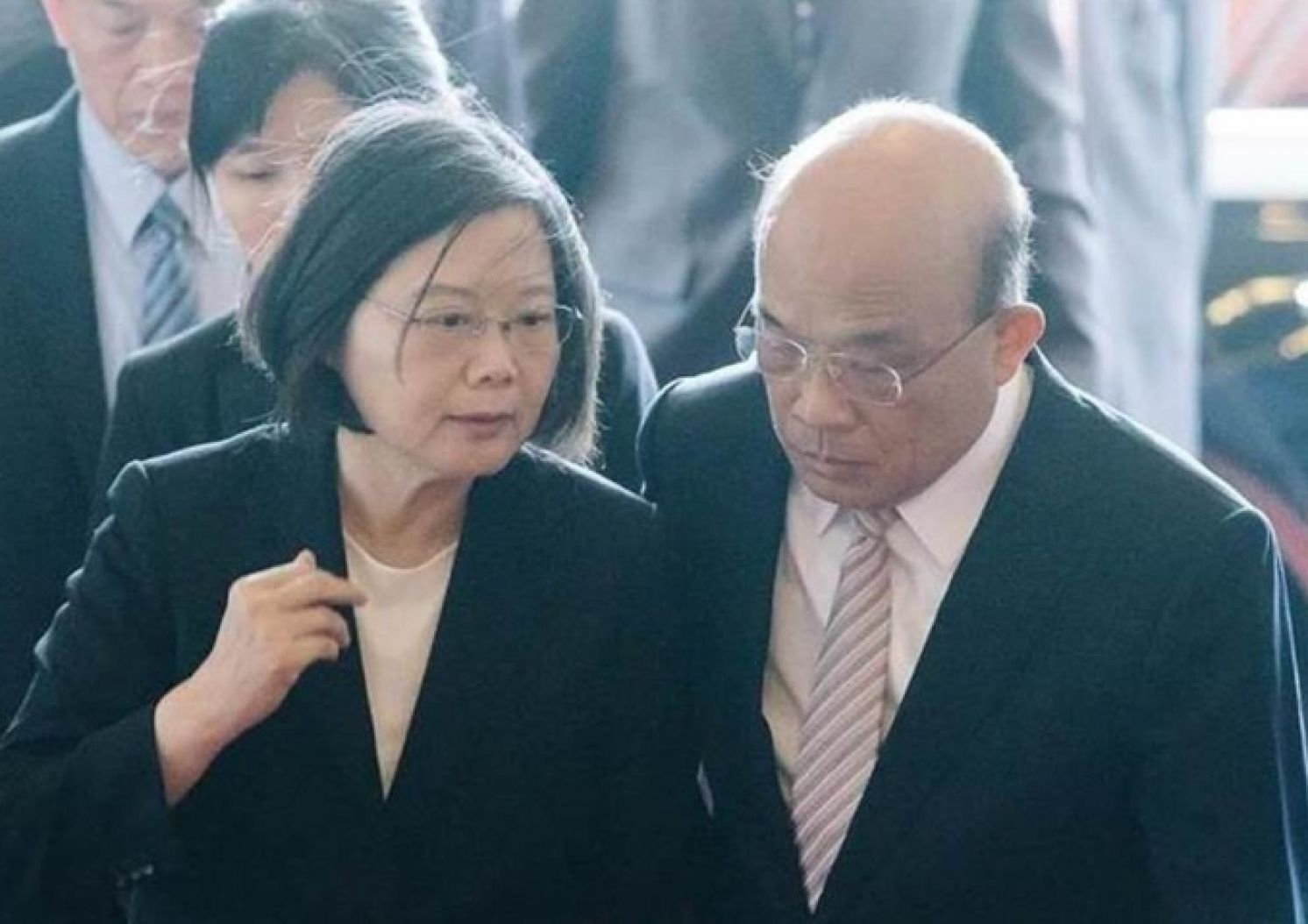
Whose Political Situation?Can the "Tsai-Su System" Continue?
United Daily News Editorial, January 5, 2023
On the question of whether NT$180 billion (about US$6 billion) in over-levied tax revenue should be paid back to the people, the administration of President Tsai Ing-wen has made several turns in the past three days, changing from "rebate" to "no rebate" then back to a cash rebate to the people. After going back and forth, although finally pleasing the public, people feel it’s getting increasingly difficult to trust President Tsai and Premier Su Tseng-chang, the so-called "Tsai-Su System." Observing the entire turmoil over handling surplus tax revenue, President Tsai and Premier Su seem to be secretly fighting and are wary of each other but are forced to compromise and cooperate. This kind of atmosphere does not meet the expectations of the people after the ruling Democratic Progressive Party (DPP) met a grave setback in the recent election and still fails to display to the public a new mentality of governance.
The message of the voters to the Tsai administration in the local elections on November 26 is quite clear: The people are highly dissatisfied with the DPP's governance in recent years, and their anger towards the central government is far greater than their dissatisfaction with local governments. However, shortly after the election President Tsai dissuaded Premier Su’s resignation and asked him to stay. The post-mortem of the election setback within the DPP was too superficial to correct policy errors. This made public anger hard to dissipate for a long time, which instead intensified. Although some DPP members also called for a cabinet reshuffle, and it was reported that Secretary-General Wellington Koo of the National Security Council, former Vice President Chen Chien-jen, and others may be selected to succeed Premier Su. A high degree of uncertainty remains.
Looking back four years ago, Su was summoned to form a cabinet as the underdog of New Taipei Mayor Hou Yu-ih. President Tsai’s arrangement at that time was more like a transitional remedy after the sudden resignation of then-Premier William Lai, and Su was regarded as an interim waiting for the formal succession of someone from the younger echelon. In the past four years, Su unexpectedly set a record for the longest-term premier and cabinet since the direct election of the president in 1996. Meanwhile, there were several opportunities to reshuffle the cabinet, yet several expected rising stars failed to succeed him for various reasons. Premier Su’s tenure was extended again and again, and he would be working for four years in a few days. The irony of the current situation is that it appears as if Premier Su is indispensable to President Tsai. It is self-evident that Premier Su is reluctant to leave, and President Tsai is hesitant of changing helmsman.
Undoubtedly, the national political situation demands stability. However, to say that Premier Su must stay in office to "stabilize the political situation" is just like wiring the wrong lines, and there is no logic at all. Just imagine, the reason why the DPP was defeated this time is precisely because the people are dissatisfied with the performance of the Tsai administration. A government with the ability to respond should certainly adjust its lineup, improve its deficiencies, and strive to improve in order to restore the hearts of the people. Now, President Tsai gives the public the impression that the official lineup cannot be adjusted to stabilize the political situation. If this is the case, then why let the people continue to be upset and frustrated?
Perhaps, President Tsai must continue to be tied to Premier Su for only one reason: she is reluctant to let go of the power in her hands, and even other comrades in the party can hardly share her power. To say "stabilize the political situation" is just euphemism; it actually aims to consolidate their own power but has no intention of changing their mindset and mode of governance. In the past four years, people have seen ”small-clique decision-making,” where a few people chatting with each other in a small room makes final decisions. Most officials are obedient and have no professional will, and popular opinion is ignored and trampled. Now, how dare President Tsai say that in order to stabilize the political situation, please continue to tolerate their arrogance?
Since the DPP was defeated in the election, the general public has never seen any sincere policy-review of the president and the cabinet. Even with the decision to rebate surplus tax revenue to the people, President Tsai used the senior-level national security meeting, to take the decision-making power into her own hands, releasing only NT$180 billion (about US$6 billion) out of the NT$450 billion (about US$15 billion) over-levied taxes. On her New Year's Day address to the people, she once signaled that she would take back her promiseand not rebate cash. On the next day, however, Premier Su revealed to the media that he would like to rebate cash. Then President Tsai followed up. The relationship between the president and cabinet seems to be mixed as tense and cooperative, and even the decision-making power in this matter has been confusing. How can such a "Tsai-Su System" improve the administration and benefit the people?
If the president tries to maintain the status quo on the grounds of stabilizing the political situation, people may ask: Whose political situation are you stabilizing, and where is your consideration for the public interest?